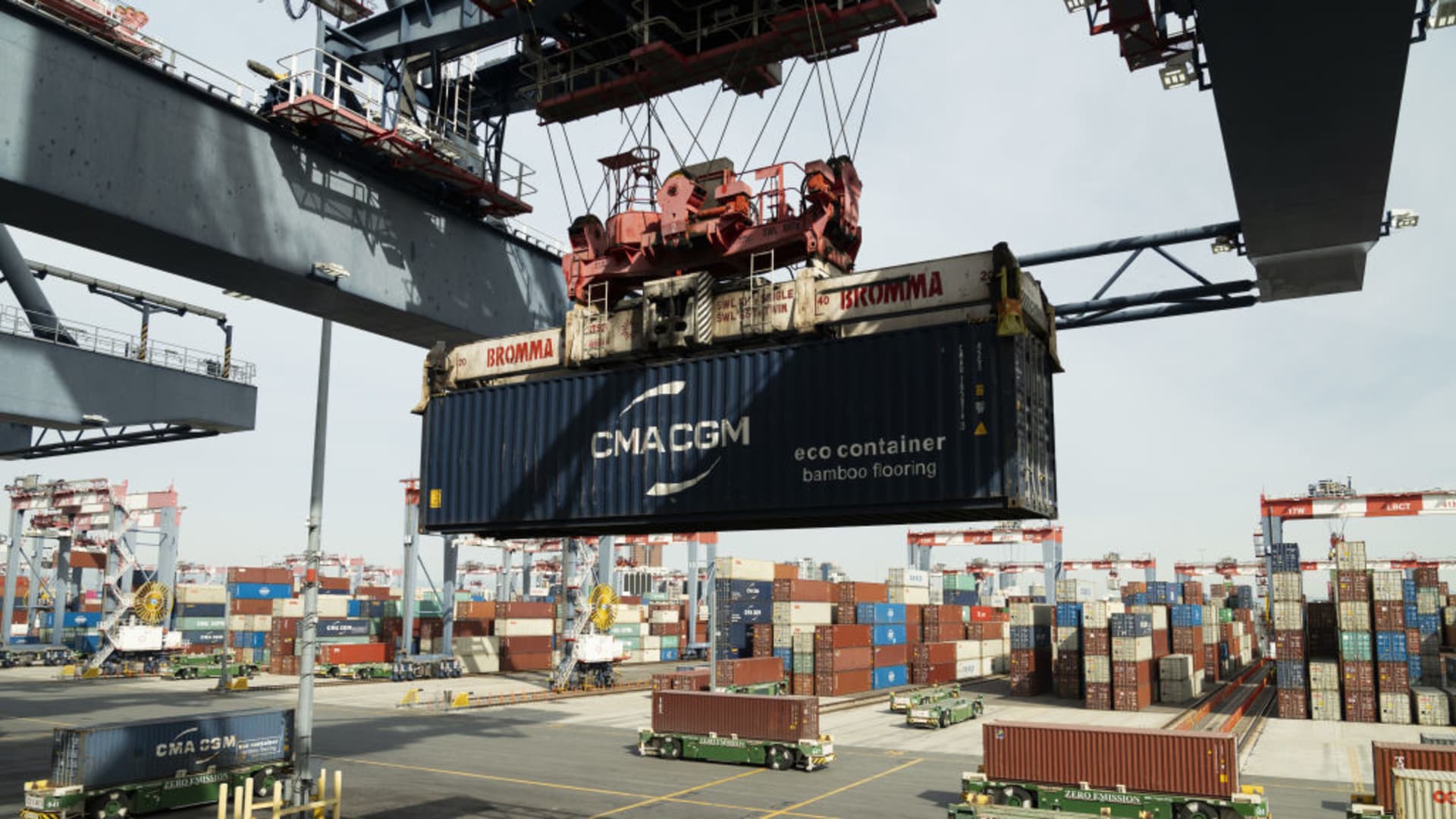Dockworkers strike in a picket line outside of the Port of Houston Authority on October 01, 2024 in Houston, Texas. The strike, affecting 36 ports, marked a historic event and was the first by the union since 1977. While the International Longshoreman’s Association and the United States Maritime Alliance reached agreement on better wages, automation is still being negotiated. (Photo by Brandon Bell/Getty Images)
Brandon Bell | Getty Images News | Getty Images
The tentative agreement to suspend the International Longshoremen’s Association strike may have consumers and businesses breathing a sigh of relief. Still, the deal is far from done, according to logistics experts.
The union and port ownership reached agreement on a wage increase in a new master contract, but port automation remains a critical issue to hammer out in the tentative deal, and it is not going to be an easy part of negotiations.
In a statement Friday, the ILA said it wants to tighten the language related to the use of automation at ports. “Automation will continue to be an issue that will be worked out and is being worked out in this contract,” the ILA stated. “The ILA negotiated restrictions on automation and semi-automation in the last contract. The ILA just wants to tighten the language that no automation means no automation.”
With a little over three months to work out a final deal, logistics executives remain wary.
“It is good news the strike has ended, but shippers are not out of the woods just yet. It is only a tentative agreement and automation at ports will remain a major stumbling block,” said Peter Sand, chief shipping analyst at supply chain intelligence firm Xeneta. “Now they have just 100 days to reach an agreement, otherwise we could see further strike action.”
At a union meeting in September, Harold Daggett, lead negotiator and ILA president, vowed in a video message to members that wages, health care, royalty payments based on cargo containers moved, and “no automation terminals or semi-automated terminals” were all among the conditions to keep the union from “shutting them down.”
Daggett made good on his initial strike promise and sources with knowledge of the tentative deal tell CNBC the USMX raised its 50% wage increase offer to 61.5% over six years. At one point, the ILA was demanding an increase of as much as 77%.
But automation is an area of negotiation that will be tougher given Daggett’s “no automation” line in the sand.
Dennis Daggett, executive vice president of the…
Click Here to Read the Full Original Article at Top News and Analysis (pro)…


